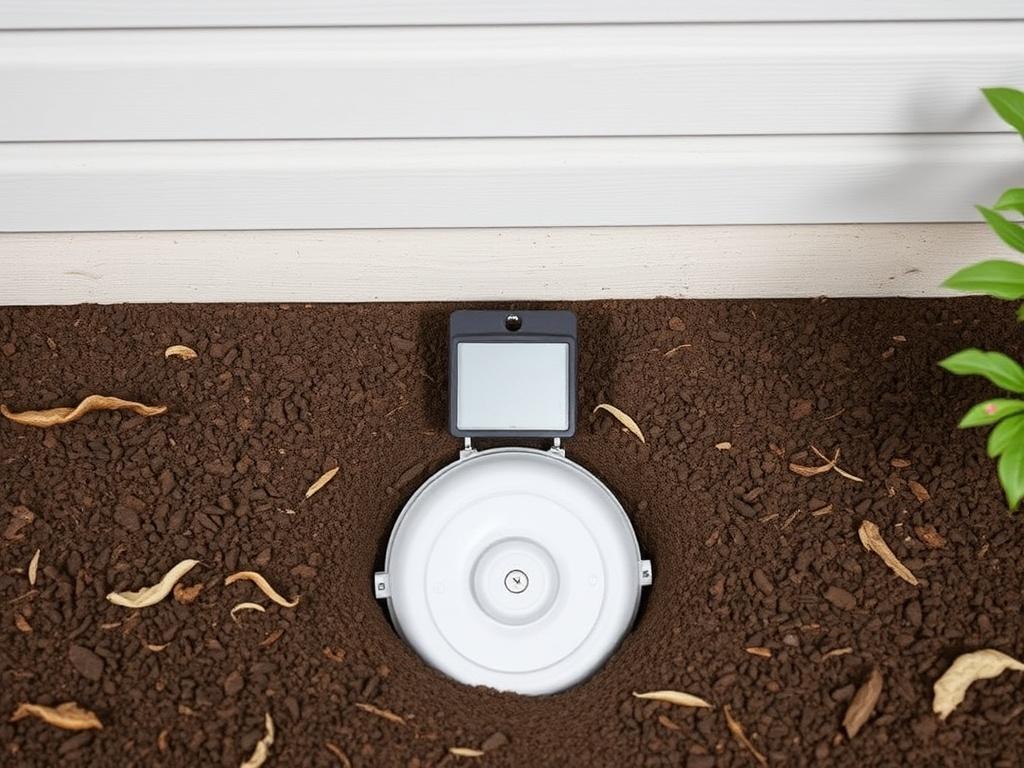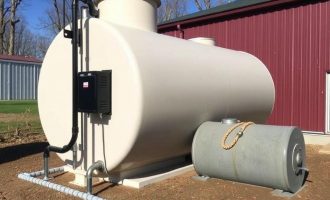If you’ve ever heard that piercing sound of your septic tank alarm going off, you know it can be both confusing and alarming. What does it mean? Is it an emergency? Should you call a professional right away, or can you handle it yourself? Dealing with septic system issues can feel overwhelming, especially if you’re not familiar with how these systems work. But don’t worry—this article will walk you through everything you need to know when your septic tank alarm starts beeping. By the end, you’ll feel empowered to troubleshoot the problem effectively and know when it’s time to seek expert help.
- Understanding the Purpose of Your Septic Tank Alarm
- Common Reasons Why Your Septic Tank Alarm is Going Off
- Step-By-Step Guide: What to Do When Your Septic Alarm Goes Off
- 1. Stay Calm and Assess the Situation
- 2. Check Your Electrical Power
- 3. Inspect the Pump Alarm Panel
- 4. Limit Water Usage
- 5. Check for Visible Pump Issues
- 6. Call a Professional Septic Service
- Regular Maintenance Tips to Prevent Alarm Activation
- FAQs About Septic Tank Alarms
- What Does My Septic Alarm Sound Like?
- Is It Dangerous to Ignore a Septic Tank Alarm?
- How Much Does It Cost to Repair a Septic Pump or Alarm?
- Can I Fix the Septic Alarm Myself?
- Why Does My Septic Alarm Keep Going Off Even After Repairs?
- Know When to Call the Experts
- Checklist for Calling a Septic Professional
- Understanding The Cost Implications
- Tips for Living with a Septic System and Avoiding Alarms
- Summary of What to Do When Your Septic Tank Alarm Goes Off
- Conclusion
Understanding the Purpose of Your Septic Tank Alarm
Before diving into what to do when your septic tank alarm goes off, it’s important to understand why the alarm exists in the first place. A septic tank alarm is designed to alert homeowners to a problem in the septic system, typically indicating that the effluent (wastewater) has reached an unusually high level. This warning is crucial because when the septic tank starts to fill up excessively, it can signal blockages, system failure, or potential environmental hazards.
Most septic systems rely on pumps to move wastewater from the tank to the drain field. The alarm usually goes off when the pump is not working properly or when the water level gets dangerously high. In other words, the septic tank alarm acts as your system’s early warning system, giving you a chance to act before things get worse. Ignoring the alarm might lead to sewage backing up into your home or yard, which can be costly and unhygienic.
Common Reasons Why Your Septic Tank Alarm is Going Off
It’s frustrating enough to hear the alarm, but understanding why it’s happening helps you take the right action. Here are some of the most common causes of a septic tank alarm going off:
- High Effluent Level: This is the most common trigger. When the wastewater level inside your septic tank rises above the normal range, the alarm sounds to warn of potential overflow or backup.
- Pump Failure: If the pump responsible for moving wastewater to the drain field burns out, clogs, or malfunctions, the water can’t drain properly, causing the level to rise and trigger the alarm.
- Power Outage: Since most septic pumps rely on electricity, a power outage can cause a pump to stop working, resulting in a high water level and alarm activation.
- Clogged or Damaged Drain Field: If the drain field becomes saturated or blocked, wastewater cannot percolate through the soil, causing a backup in the tank and triggering the alarm.
- Float Switch Problem: The float switch detects the level of liquid in the tank. If it gets stuck or damaged, it might send a false high-level signal to the alarm.
Knowing these causes will help you diagnose the issue, but remember that some problems require professional inspection or repair.
Step-By-Step Guide: What to Do When Your Septic Alarm Goes Off

If your septic tank alarm starts beeping, follow these steps carefully to troubleshoot the issue:
1. Stay Calm and Assess the Situation
The first step is not to panic. The alarm is a warning, not a disaster. Check whether there are any signs of sewage backup in your home or yard. If you see wastewater coming up through drains or pooling outside, treat it as urgent and avoid contact with the area.
2. Check Your Electrical Power
Since septic pumps depend on electricity, verify that your home’s power is on. A simple power outage can cause the pump to stop working and set off the alarm. If the power is out, wait until electricity is restored to see if the alarm stops.
3. Inspect the Pump Alarm Panel
Locate the septic system pump alarm panel, typically installed near the septic tank or in the basement. The panel may have indicator lights or reset buttons. Sometimes, pressing the reset button can silence the alarm temporarily. However, this does not solve the underlying problem, so it’s just a temporary fix.
4. Limit Water Usage
To prevent further wastewater from entering the system and worsening the issue, limit your water use. Avoid doing laundry, running dishwashers, or taking long showers until the alarm is resolved.
5. Check for Visible Pump Issues
If you feel comfortable and know where the components are, inspect the pump basin to see if there are any obvious signs of malfunction or clogging. Do not open the septic tank itself—that requires specialized knowledge and safety precautions.
6. Call a Professional Septic Service
If you cannot quickly identify or fix the issue, it’s time to call a septic service professional. They will have the tools to diagnose pump problems, check the drain field, clean the tank, and repair or replace faulty components.
Regular Maintenance Tips to Prevent Alarm Activation
One of the best ways to avoid hearing that septic tank alarm is by maintaining your system regularly. Here are some easy tips that can help keep your system working smoothly:
| Maintenance Task | How Often | Why It Helps |
|---|---|---|
| Septic Tank Pumping | Every 3-5 years | Removes accumulated sludge and scum, preventing tank overflow and pump strain. |
| Inspect Alarm Panel and Pump | Annually | Ensures alarm and pump are working correctly and identifies issues early. |
| Limit Water Usage | Ongoing | Prevents overloading the system and reduces the risk of alarm activation. |
| Avoid Flushing Harmful Items | Ongoing | Prevents clogging pumps and drain fields with inappropriate materials. |
| Protect the Drain Field | Ongoing | Do not park vehicles or plant heavy trees over the drain field to avoid damage. |
FAQs About Septic Tank Alarms
What Does My Septic Alarm Sound Like?
Most septic alarms emit a loud, continuous beeping sound designed to alert you immediately. Some may also have flashing lights or visual indicators to supplement the audible warning.
Is It Dangerous to Ignore a Septic Tank Alarm?
Yes, ignoring the alarm can lead to serious issues including sewage backup into your home, health hazards, and costly repairs. The alarm is your first line of defense, so it’s vital to address it promptly.
How Much Does It Cost to Repair a Septic Pump or Alarm?
Costs vary significantly based on the problem. Simple repairs or replacements of float switches might run a few hundred dollars, while pump or drain field repairs could reach into the thousands. Regular maintenance can help prevent costly emergencies.
Can I Fix the Septic Alarm Myself?
Troubleshooting simple issues like resetting the alarm or checking for power outages is manageable. However, pump repairs or anything involving the tank internals should be handled by licensed septic professionals for safety and compliance reasons.
Why Does My Septic Alarm Keep Going Off Even After Repairs?
Persistent alarms might indicate underlying problems like a saturated drain field, an undersized system, or recurring pump issues. A thorough inspection and sometimes upgrades are needed to resolve repeated alarms.
Know When to Call the Experts
Having a septic tank alarm going off is a sign that your system needs professional attention. If after checking the basics—like power supply and limiting water use—the alarm remains, it’s best to call a septic service company. Licensed technicians have specialized equipment to safely and efficiently diagnose the issue, whether it’s a failing pump, clogged lines, or drain field problems. Prompt service will protect your home, health, and wallet by avoiding larger repairs or dangerous backups.
Checklist for Calling a Septic Professional
- Alarm is continuously sounding and won’t reset
- You notice sewage backups in drains or yard
- Pump noise is unusually loud or not running
- Persistent odors around the septic tank or drain field
- Unusual wet spots or lush grass on the drain field
When you contact a professional, be ready to provide details like when the alarm started, any recent changes in water use, and maintenance history. This information helps accelerate diagnosis and repair.
Understanding The Cost Implications

Septic system repairs can vary in cost, but having a septic tank alarm going off might save you money in the long run by preventing major damage. Here’s a simple breakdown of potential expenses related to common septic issues triggered by an alarm:
| Issue | Estimated Cost Range | Notes |
|---|---|---|
| Float Switch Replacement | $150 – $400 | Relatively quick fix usually done in under an hour. |
| Pump Repair or Replacement | $500 – $2,500 | Costs vary depending on pump type and labor. |
| Tank Pumping and Cleaning | $200 – $400 | Routine maintenance reduces alarm triggers from sludge build-up. |
| Drain Field Repair or Replacement | $3,000 – $10,000+ | Major system repairs if field is saturated or damaged. |
Investing in regular septic system maintenance can reduce the likelihood of alarm activation and expensive emergency repairs.
Tips for Living with a Septic System and Avoiding Alarms

Living with a septic tank requires a bit of awareness and care, but these simple lifestyle tips can go a long way toward a healthy system free of alarms:
- Watch what you flush or pour down drains. Avoid grease, wipes, feminine hygiene products, and harsh chemicals.
- Spread out water usage throughout the day to prevent overloading the system.
- Keep records of septic inspections and pumpings.
- Plant grass but avoid planting trees or shrubs near the drain field.
- Keep heavy vehicles and equipment off the septic drain field to avoid soil compaction or pipe damage.
By treating your septic system as a vital part of your home infrastructure, you’ll enjoy fewer alarms and longer system life.
Summary of What to Do When Your Septic Tank Alarm Goes Off
| Step | Action | Why |
|---|---|---|
| 1 | Check for power outage | Pumps need electricity to work |
| 2 | Reset the alarm box | Temporary stop for the alarm sound |
| 3 | Limit water use | Prevents additional flow into septic |
| 4 | Inspect pump basin if safe | Identify obvious issues |
| 5 | Call septic professional | Diagnose and fix major problems |
Conclusion
Hearing your septic tank alarm going off may initially cause stress, but by understanding what the alarm means and following clear steps, you can address the problem effectively before it escalates. Remember, the alarm is your system’s way of notifying you about high effluent levels or pump failure, issues that require immediate attention. Be proactive in limiting water use, checking basic system components, and calling a septic professional when necessary. Regular maintenance and mindful household habits are your best defense against septic alarms, helping to avoid costly repairs, unpleasant backups, and health hazards. With this knowledge, you’ll approach any septic alarm with confidence and take the right actions to keep your system running smoothly for years to come.
Помогла вам статья?






